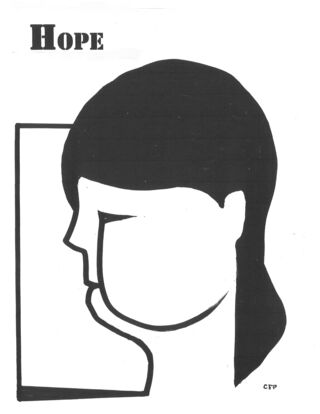Adolescence
Emotional Crises at the End of Adolescence
Times of stressful, anxious, and depressive suffering can become more common.
Posted December 5, 2022 Reviewed by Jessica Schrader
Key points
- At first, all the demands of functioning independently can feel excessive.
- At worst, episodes of stress, anxiety, hopelessness, or despondency can occur.
- To help cope, consider counseling, employment, interests, and companionship.

One problem with becoming more grown up is that the last-stage adolescent is now supposed to act this way. At times, striving to meet these older expectations can feel tough to do.
- “I wanted independence, but not so much responsibility!”
- “All these choices are now left up to me!”
- “There’s so much to take care of!”
- “How will I find my way?”
- “I can’t get it together!”
- “I’m messing up!”
- “I’m all alone!”
- “What now?"
Independence is challenging
For many older adolescents (ages 18 to 23), there are times when acting adult is more demanding than they anticipated and bargained for. For a while, they can flounder—losing their footing sometimes in the trial-and-error process of trying to find it.
Self-support, self-supervision, self-direction, self-motivation, and self-care: establishing self-sufficiency can feel extremely taxing. When failing to catch hold, they can become discouraged—disabling confidence with a loss of hope and painful self-doubt.
At worst
Because finding one’s older footing can be a struggle, emotional duress is often suffered before functional independence is, by effort and experience, finally assumed. There can be episodes of:
- Stress when overwhelmed by demand.
- Anxiety when fearing incapacity to advance.
- Depression when feeling discouraged and despondent.
While adolescence begins with loss (letting go of some old childhood confidence and comforts that must be forsaken); adolescence ends with worry (facing the uncertainties and challenges that functional independence brings).
Just as adolescence was more complicated than childhood, adulthood is more complicated than adolescence because independence is more demanding than dependence. For a painful while, one can feel inadequate and insecure.
What might help?
Helpful activities
For young people beset by stress, anxiety, or depression as they stand on the threshold of adulthood, consider four stabilizing activities.
- Counseling to gain support and self-understanding: “I am learning to accept the hard place I am in and to find my way forward.”
- Employment to affirm one’s worth through holding a job: “I can earn my keep and am valued for work I provide.”
- Interests to experience caring and confidence: “I have pursuits that matter and show what I can do.”
- Companionship to have the company of others: “I’m not isolated, but feel socially connected.”
All four activities can help struggling young people sustain the tough transition into adulthood, developing competence and direction as they grow.
Parental advice
To their last-stage adolescent who feels daunted and discouraged by the challenges of functional independence, what might parents advise? Perhaps they could offer something like this: “Each day take four positive actions for yourself, and feeling better will gradually occur."
- Do something affirming, like appreciating how you're keeping at it.
- Do something basic that must essentially be done, like earning money.
- Do something improving that makes your life better, like pursuing goals.
- Do something fun that will make you happy, like some pastime you enjoy.
When they do these each day, their self-respect for hanging in there, demonstrating capacity, showing progress, and making life rewarding may grow, along with their faith in their future: “I’m making it—good for me!”
To find a therapist, please visit the Psychology Today Therapy Directory.


